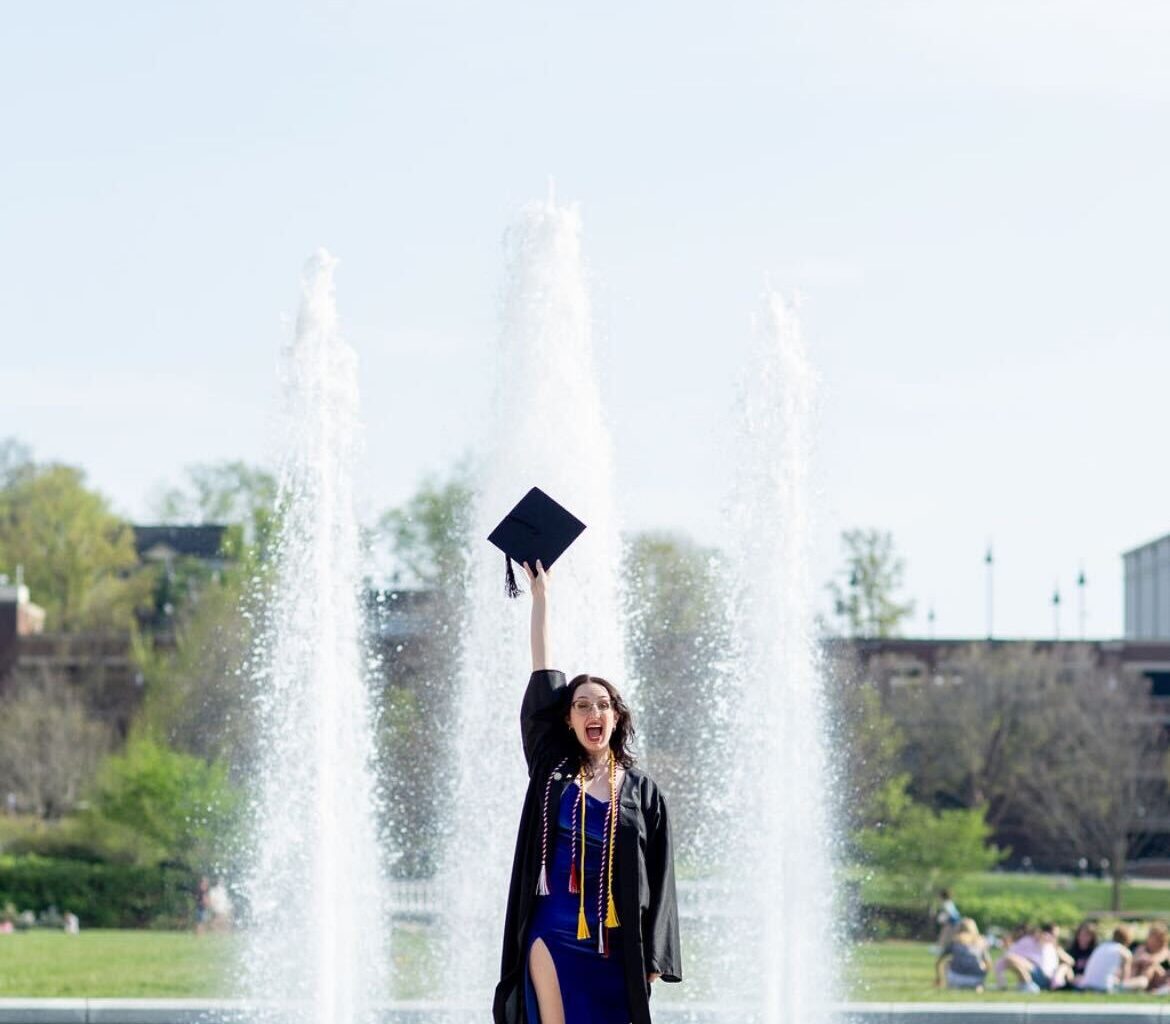When I was in undergrad, I packed my days to the brim with 19 credit hours of classes per semester, earned a double major, attended nightly play rehearsals, performed with a sketch comedy group, led three on-campus organizations, worked part time and joined a Rocky Horror Picture Show shadowcast company — all while cultivating meaningful friendships and maintaining my GPA.
I loved every chaotic, colorful minute of it.
Now, as a graduate student, I find this academic and social vibrancy lacking.
I took a gap year in between undergraduate and graduate school, mostly to save money and give the working world a chance. As helpful as it was, I missed learning in an academic setting.
This time, though, my path doesn’t seem to be as clear.
The transition into my master’s program has revealed to me how much I took for granted in undergrad. Whereas structure, time and assurance were so abundant before, now I’m lucky to catch a fleeting moment.
Undergrad seems to be structured to cushion the transition into adult life by providing a packed and fulfilling lifestyle. Students are encouraged to take classes full time, hopefully join an organization or two and spend time meeting new friends. Between homework and exploring newfound independence, an undergraduate’s time is essentially accounted for.
Yet, the onus is entirely one’s own as a graduate student. Most structural support is no longer readily accessible.
My schedule doesn’t primarily revolve around classes, leaving gaps of uncertainty about what to do and when. Free time — rare as it can be — feels the most daunting. With endless options of what I can and probably should do, how can I possibly decide how to fill my time correctly?
Not to mention I, like many other graduate students, have to work nearly full time to support myself. The five-to-nine after my nine-to-five leaves little space, let alone energy, for homework and extracurriculars.
Without hobbies, one’s social circle can shrink to just coworkers and classmates. A smaller social pool isn’t inherently negative, but there’s a clear distinction from the vast exposure to different groups I had as an undergraduate.
Another difficult piece of this transition has been the striking self-doubt I’ve felt even since moving to Chicago. I know this decision was absolutely right for me, but I frequently doubt how I can be a strong choice for a graduate social sciences program.
I look around at my classmates and feel like a toddler among rocket scientists. In my mind, they are all competent, and I’m an incompetent imposter among them waiting to be found out. Although not specifically true, the feeling is astonishingly real.
I don’t mean to insinuate graduate school is doom and gloom. On the contrary, this time can be especially fulfilling. Many of the same resources and opportunities are still available. These options just require extra initiative to access since part of the assumption of higher education is that you’re ready to fly on your own.
My first day of school this year went by rather quietly. My parents weren’t here to hug me goodbye on my way out the door. I came home from class, ate a sandwich with my cat as company and went to bed. It was a small start to a big adventure.
This time can feel solitary, like I’m navigating it alone. Really, though, the people I love — and my younger self — are walking beside me down this unfamiliar, uncertain road.
I guess the path of change is winding. Fortunately, it’s not one that any of us have to wander on our own.
